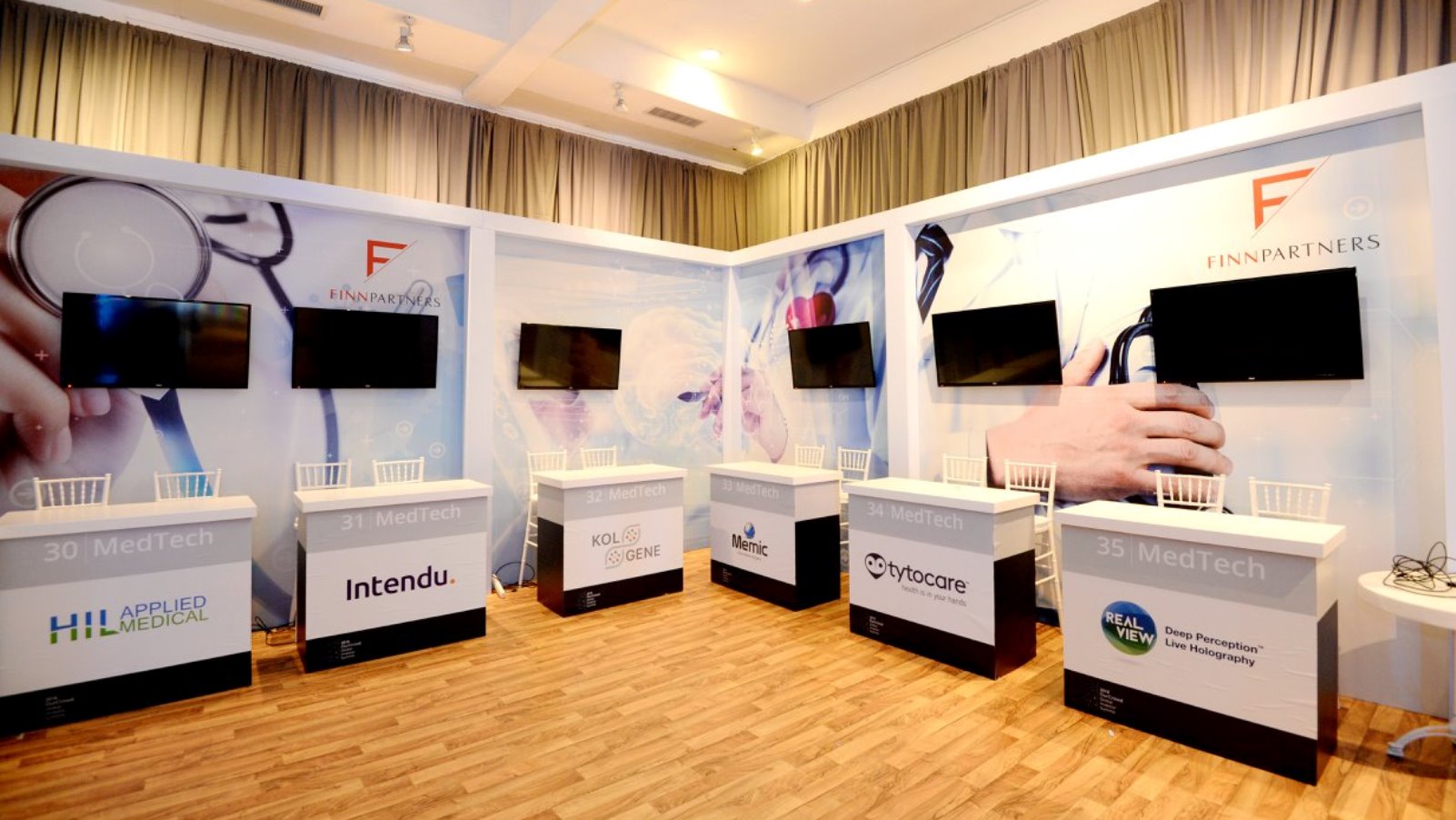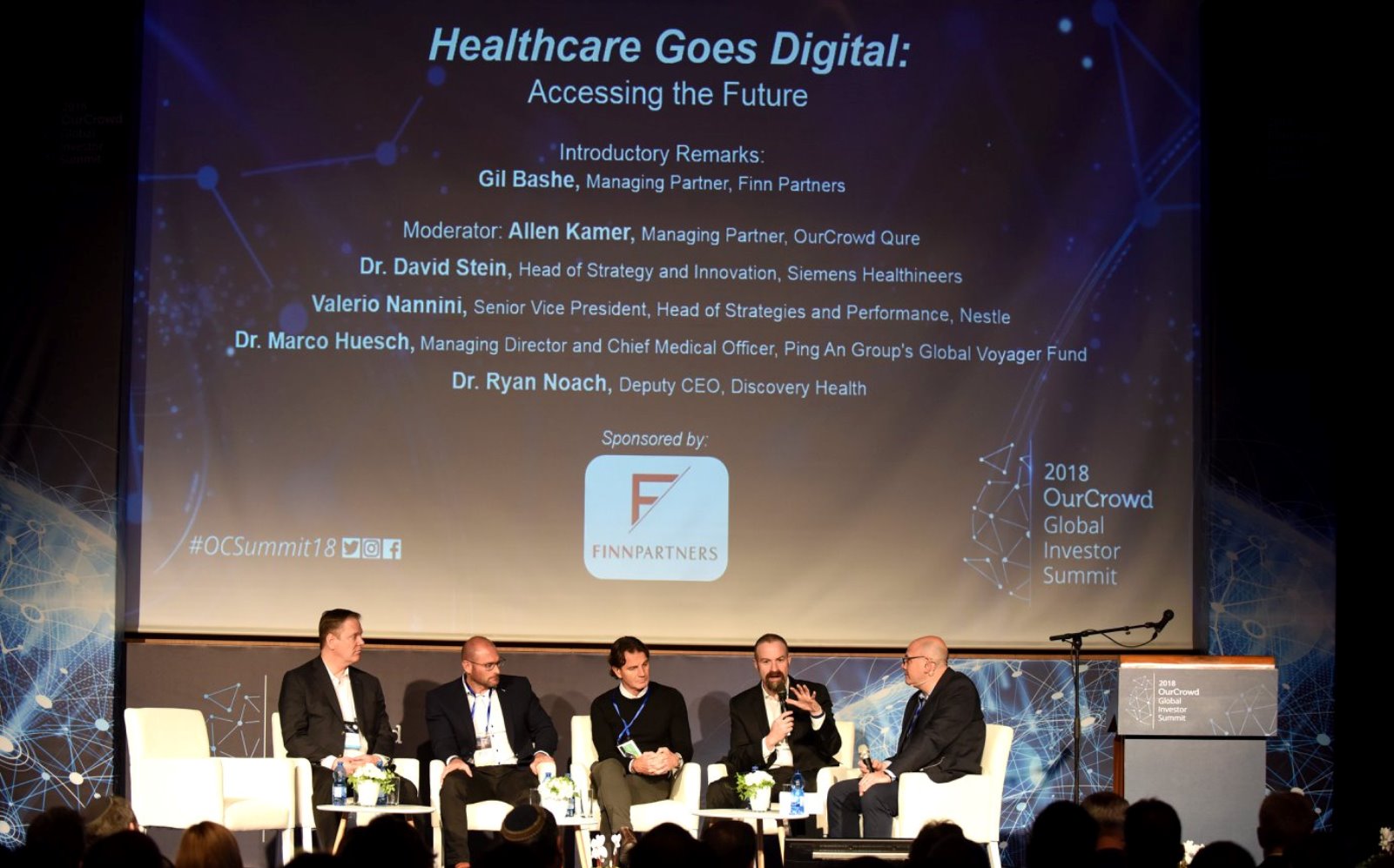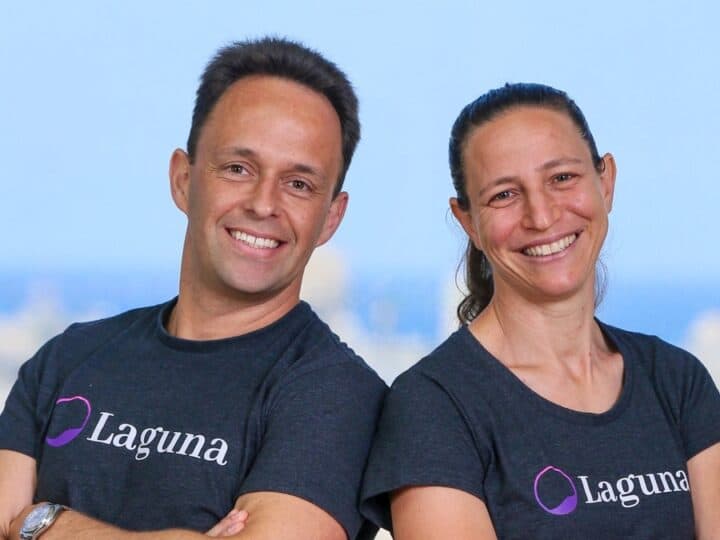Medication personalization, personalized disease management and reducing chronic pain will be the three biggest breakthroughs in digital health this year, predicts Dr. Yossi Bahagon, a family physician, global digital health consultant and managing partner of OurCrowd Qure, Israel’s first exclusively focused digital health fund.
Digital health is a booming business, projected to be worth $230 billion by 2020.
Over the course of 2017, investments skyrocketed in hardware and software solutions and services – including telemedicine, wearable technology, mobile applications and remote monitoring sensors – to help healthcare professionals and patients prevent and manage illnesses and health risks, as well as promote wellbeing.
“Digital health is not about technologies; it’s about creating a different human experience and quality of care while utilizing advanced technology,” Bahagon tells ISRAEL21c.
“Patient-centric platforms using big-data tools to improve quality of care, efficiency and transparency are at the essence of all the systems being developed,” says Bahagon, one of the people responsible for Israel’s fully digitized healthcare system, a rarity in the world.
According to figures from EY Israel, Start-Up Nation Central and IATI, which co-sponsored the fourth DigitalHealth.il conference in Tel Aviv on January 23, Israel is prominent in the global digital health landscape, with more than 450 active startups and companies in a variety of digital health-related fields and more than 700 local and global participants.
In the face of rising costs, an aging population, fragmented care and wasted resources, digital technologies are reinventing the way we consume and receive healthcare by expanding access, improving quality and managing costs.
The 3 breakthroughs
Bahagon explains his three picks for digital health breakthroughs in the near future, noting that there are Israeli startups involved in all of these areas.
- Medication personalization: “Medicine is one-size-fits-all today, even though each patient has completely different DNA and habits. This is going to change dramatically in the next few years.”
“When one patient comes into my clinic he will get a certain treatment and a different patient with the same or similar disorder will get a different treatment. This personalization will be based on analyzing patients’ genetic, clinical and physiological data.”
- Personalized disease management: “There are already platforms for this today but they are not yet seamlessly personalized to the patient. This will happen soon.”
- Pain reduction using digital health tools: “In the United States, there is a big buzz about the overuse of opioids. We see companies targeting the area of chronic pain reduction using advanced digital tools such as augmented reality.”

At the OurCrowd Global Investment Summit on February 1 in Jerusalem, thousands of visitors had a chance to try Israeli digital-health technologies in a demo space dubbed Doctor’s Office of the Future.
People explored DarioHealth’s personalized, pocket-sized glucose meter coupled with a real-time mobile app to manage diabetes; ElMindA’s mapping tool for visualizing neural activity to optimize management of brain disorders and injuries; HIL Medical’s radically cheaper and smaller proton-beam laser-based cancer therapy system; Intendu’s adaptive motion-interaction brain rehabilitation platform for at-home therapy; KolGene’s system for connecting clinicians with genetic labs worldwide; Memic’s internal laparoscopic surgical robotic system; RealView Imaging’s medical holography visualization system for medical images; and TytoCare’s suite of products for simple tele-health examinations and consultations.
Introducing Israeli digital health to major stakeholders
As part of the summit, Bahagon and fellow OurCrowd Qure Managing Partner Allen Kamer hosted a three-day event for visiting digital health and innovation executives Dr. Ryan Noach of Discovery Health, Dr. David Stein of Siemens Healthineers, Valerio Nannini of Nestle, Dr. Marco D. Huesch of Ping An Group’s Global Voyager Fund, Andre Crawford-Brunt of Oxford Science Innovation, Haim Regev of Siemens Healthcare Israel and Stavit Navon of SAP Israel.
Exploring everything from nutrigenomics and personalized medicine to the smart medical home and remote diagnostics and care, these experts met with the head of the Weizmann Institute of Science’s Yeda tech-transfer company, innovation officers from the ministries of Defense and Economy, the head of the prime minister’s office and Prof. Avi Simchon, head of the National Economic Council.

The visitors were introduced to seven Israeli digital health startups (Cytoreason, Scopio, AEye, Tyto, Games 4 Pain, CyberMdx and BrainQ) followed by an hour-long discussion with Prime Minister Benjamin Netanyahu on how Israel is anticipated and aspiring to grow in the digital health space.
“Netanyahau said this will be one of Israel’s major growth engines in the next few years,” Bahagon reports.


















